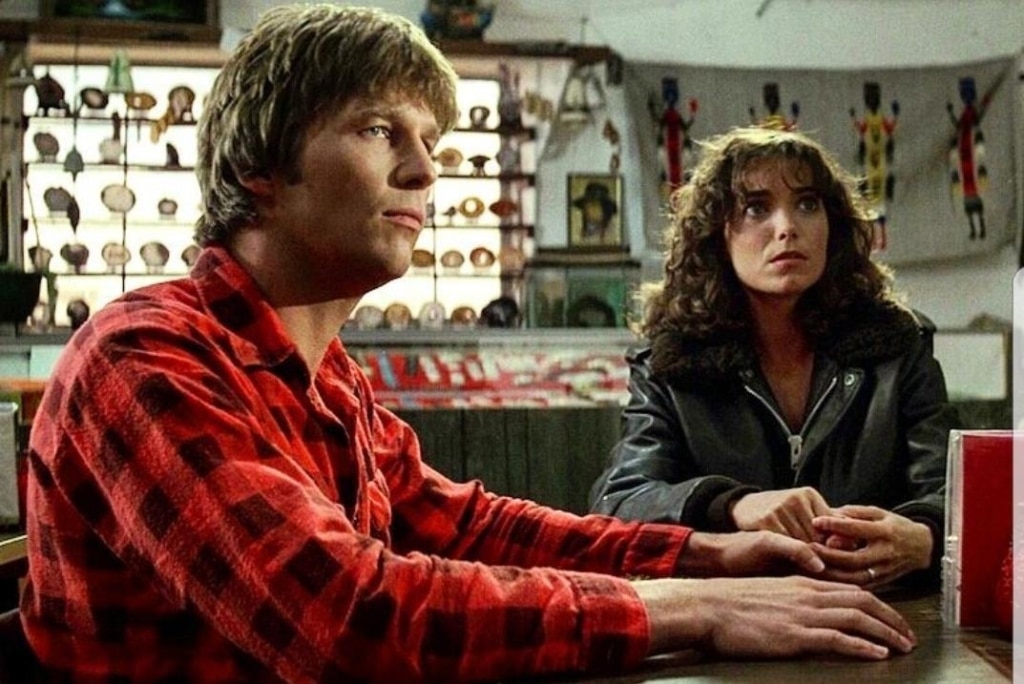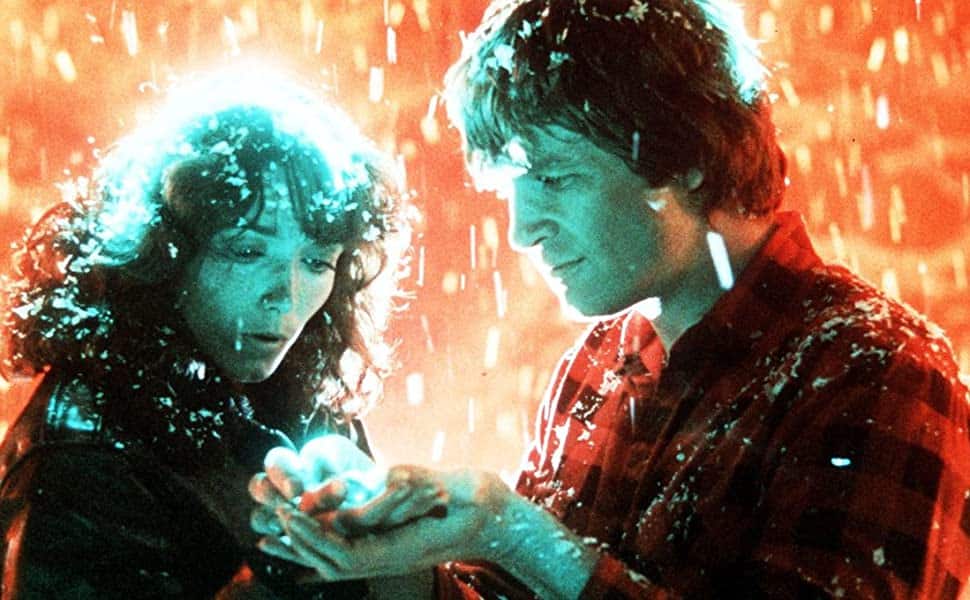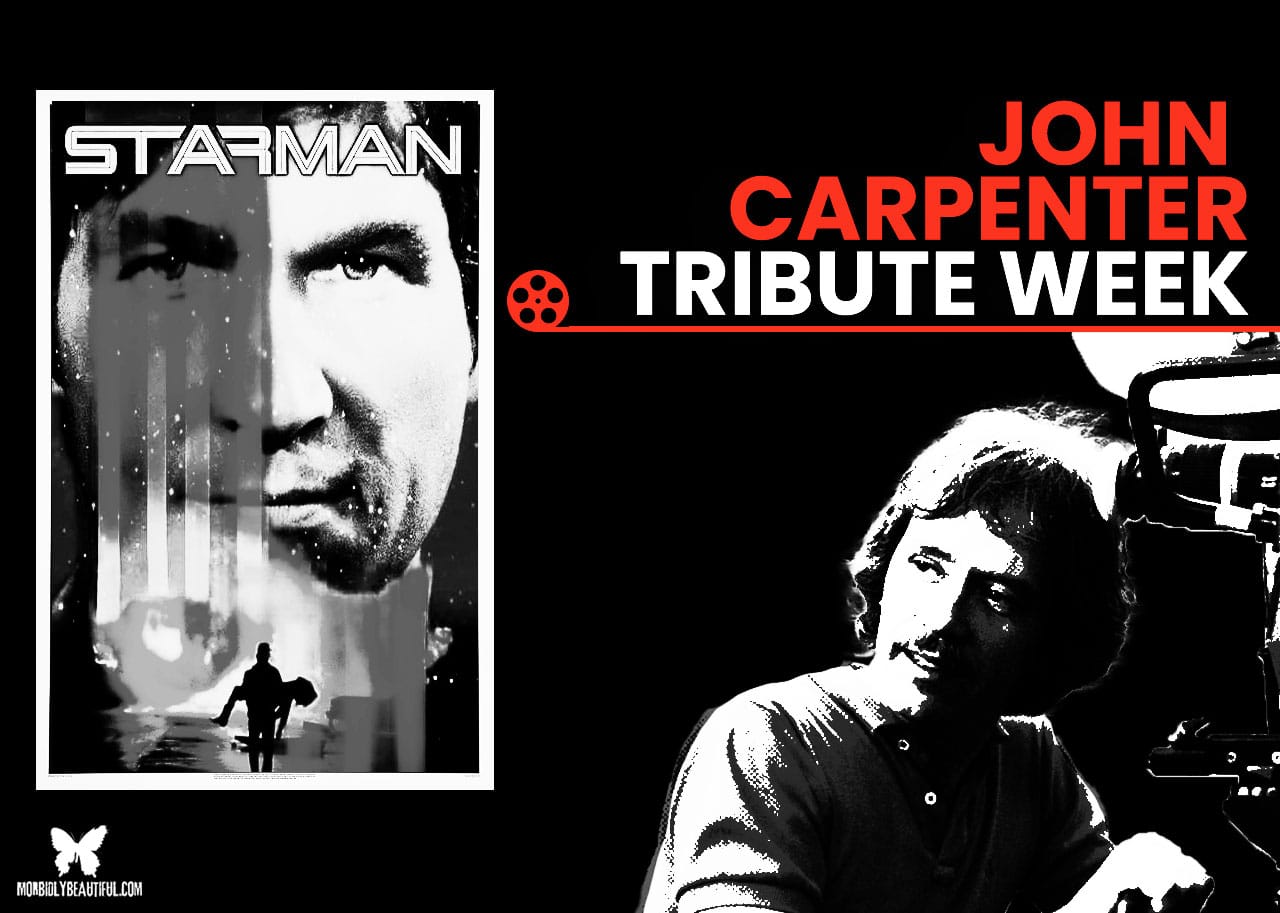“Starman” may involve an alien, but it’s a genuinely touching story about being human and understanding the power of love.

So far, we’ve explored Carpenter’s work from the 70s (Assault on Precinct 13), the 80s (Big Trouble in Little China), and the 90s (Vampires). Most of Carpenter’s biggest hits, at least in retrospect, came during the late 70s through the end of the 80s. But one of his most mesmerizing films, released in 1984, gets lost in the shuffle, sandwiched between fan favorites like The Thing and They Live.
That film is Starman, and it’s rarely talked about in the pantheon of Carpenter’s greats, though I argue it should be.
I first saw Starman as a teenager because my dad showed it to me. I remember loving it but being unable to revisit it quickly because it stayed with me. Now it’s been several years, and I’m seeing it for the first time with fresh eyes. Sitting down to write this tribute article for a film that impacted me so much when I was young, I have been able to fall in love with Starman all over again.
Starman follows an extraterrestrial, the Starman (Jeff Bridges), who crash-lands on Earth after responding to greetings Earthlings sent into space. He assumes the form of a widow’s husband and then forces her to take him where he’s headed: Arizona.
The widow, Jenny Hayden (Karen Allen), tries to get away several times. But then she witnesses him perform a miracle and instead chooses to help him (otherwise, he’ll die). Along the way, it is through the kindness of others that they get to their destination while the military chases them in a race against time.
John Carpenter is a master of sci-fi/horror and often muses about the mysteries of space in his movies, notably The Thing (1982) and later Starman.
I love the compelling idea this film explores, asking if anyone is out there beyond our universe and if they can hear our call. If they could hear our call, what would happen if they answered?
The effects are dated, which is to be expected for a film made in 1984. Though Carpenter typically employed practical effects, often to exceptional results, our modern high-definition screens are apt to expose the flawed special effects tricks of the 80s.
Even so, there is at least one scene where the body horror will make you squirm from the weirdness of it. You’ll know it when you see it.
What I personally love about John Carpenter’s movies is their timeless quality.

Sure, the hair and clothes date the films, which is inevitable. However, the story, characters, performances, and music endure.
Jeff Bridges’ performance is mesmerizing. He comes across as uncanny… human-looking, but not quite. There is a waxwork feeling to his face from the makeup and lighting. He seems synthetic as if he was created, not born. His movements are purposefully exaggerated to resemble how a bird constantly assesses the environment.
Jeff Bridges’ performance is the key to this film working as well as it does.
He was willing to get as silly as necessary, as alien and strange as he had to, so he could make an audience believe he wasn’t human. His confusion is palpable as he struggles to understand how to use his new body and relate to the culture, customs, and language of this strange species he finds himself living among.
So much of the alien aspect is communicated through Jeff Bridges’ body. It’s a masterclass.
However, as impressive as his performance was, it was Karen Allen’s Jenny that truly grounded this movie. Her humanity and kindness shine through the screen. Jenny is the beating heart of this tender story.
Starman wants us to think about what it means to be human.

Sometimes we need to be reminded that our existence — including the things we built and especially our capacity for love — is remarkable, in spite of our tremendous flaws and capacity for evil.
Personally, I wonder, if extraterrestrials were real, would they even bother to stop here given how hostile we tend to be to anything we don’t understand? We ostracize and persecute other humans who are different in some way; imagine how we’d react to an alien being.
Or maybe The X-Files (1993-2018) had it right all along, and the aliens are already here. Maybe they’ve assimilated; they look like us and talk like us. Maybe they’re just collecting data and assessing if the human species is worth saving. If that were the case, I wonder what they’d find. We can be such monstrous beings. But as Carpenter (along with writers Bruce A. Evans, Raynold Gideon, and Dean Riesner) wants us to consider, we can also be miraculous.
There’s something very powerful in how this film shows our world as soon through the eyes of an outsider. As Starman observes, “You are at your very best when things are worst.”
Humans have this tremendous tendency to find themselves, their true selves, amid horrible circumstances. We only know happiness because we’ve known suffering first. Humanity is far from perfect. But there is kindness. And there is love.
This is the kind of film that ignites your imagination and makes you want to talk about it and attempt to understand the big ideas it explores.
Starman (1984) isn’t just a movie, it’s an experience. And it deserves to be better known among John Carpenter’s impressive body of work.














Follow Us!